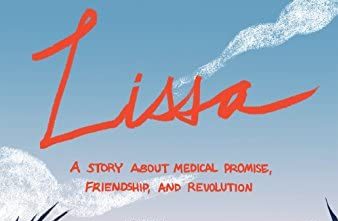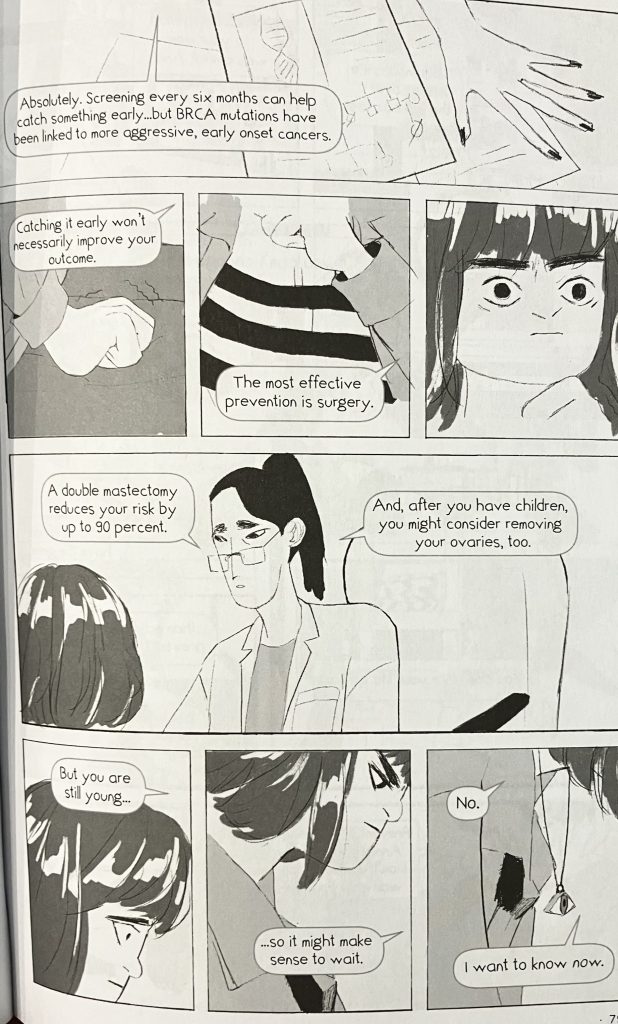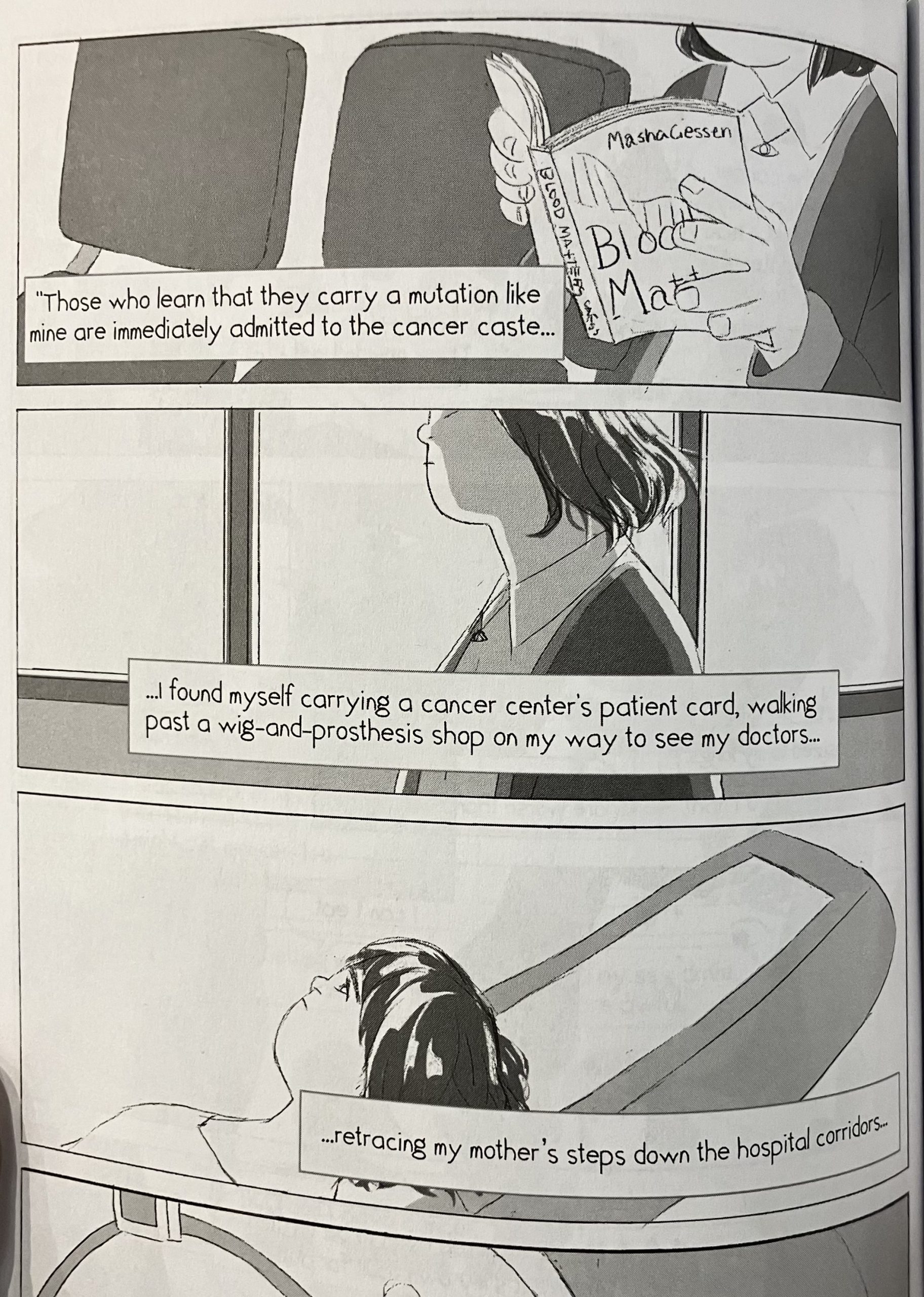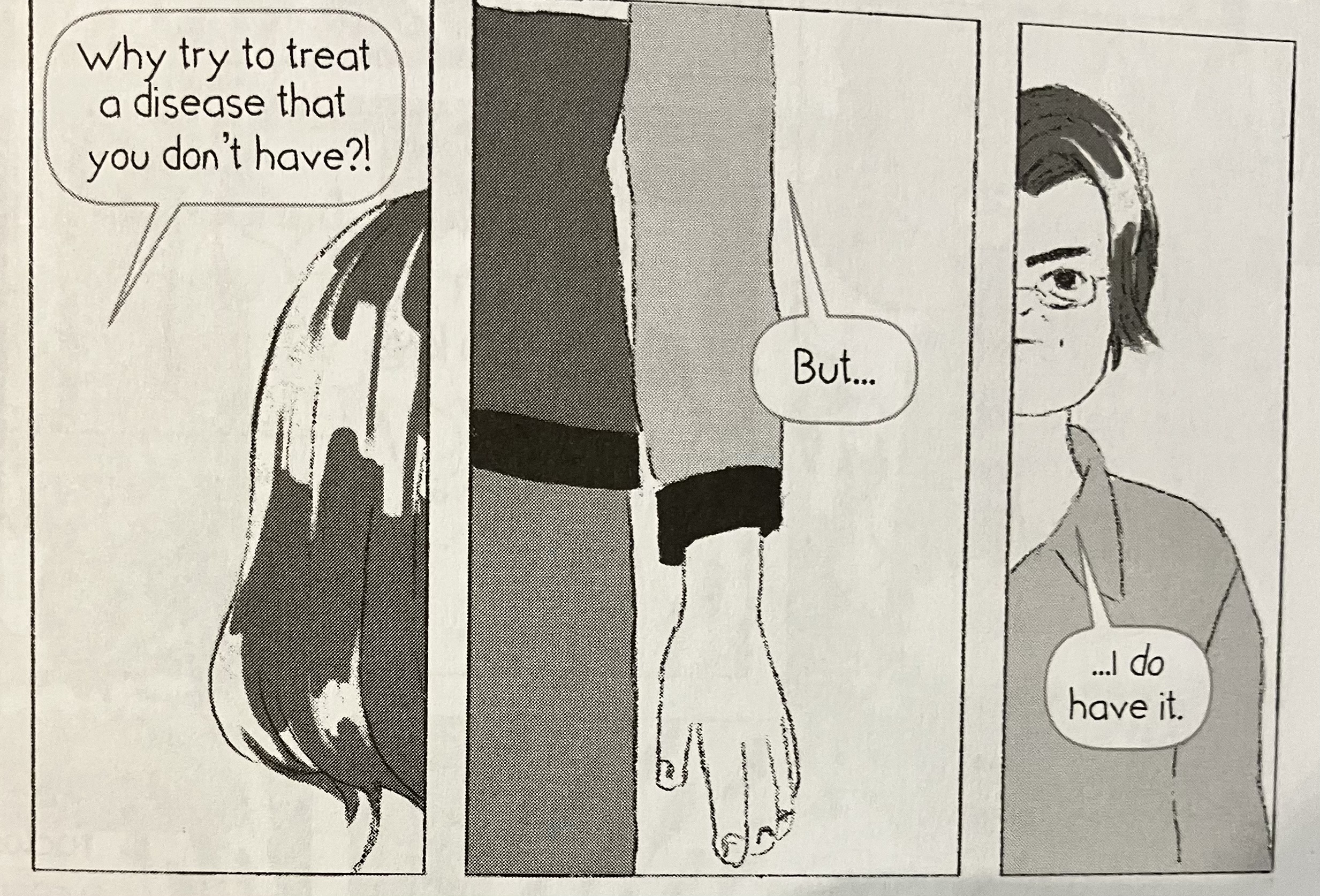
Lissa is a graphic novel about two friends who are both dealing with medical crises in the midst of the Arab Spring in Egypt. One of the girls, Anna, discovers that she has the same gene mutation (BRCA) that caused her mother’s breast cancer. A major theme of this book is illness-in-potentia– how patients understand themselves as simultaneously ill and well, the anxieties of constantly undergoing checkups and waiting for diagnosis, and the many pressures placed on patients to make particular choices. Within the story, Anna conducts research, visits support groups, meets with doctors, and talks with current cancer patients. She eventually decides to pursue a double mastectomy without reconstruction, and the book chronicles the ways this affects her social and political life.
Key Outtakes:

Pg. 57
This is the first scene in which Anna confronts her father about the possibilities of a genetic cause for her mother’s illness. He is quick to reassure her, but she is left with lingering doubts.

Pg. 78

Pg. 79
In this panel, Anna is in a preliminary meeting to discuss her eligibility for genetic testing. This is her first foray into being a patient-in-potentia, and it is here that she is first presented with the possibility of preventative surgery.

Pg. 86
This panel shows Anna being told that she carries the BRCA gene. Her reaction is similar to that of people who are being told they have cancer– although she is not yet ill, she now carries the inevitability of illness. She is now experiencing a dual reality of simultaneously being well and having cancer.

Pg.???

Pg. 92
Here Anna reads a book talking about the liminality of carrying a cancer gene, where proto-patients begin to engage in the same behaviors and systems as cancer patients.

Pg. 119
As Anna begins to lean towards choosing a mastectomy, she is also starting to identify with Sontag’s metaphorical Kingdom of the Ill.
Anna experiences some backlash for her decision from her friends and family. Traumatized by her mother’s death and anxious about her newly revealed genetic mutation, preventative care represents not only good health but safety and stability.
